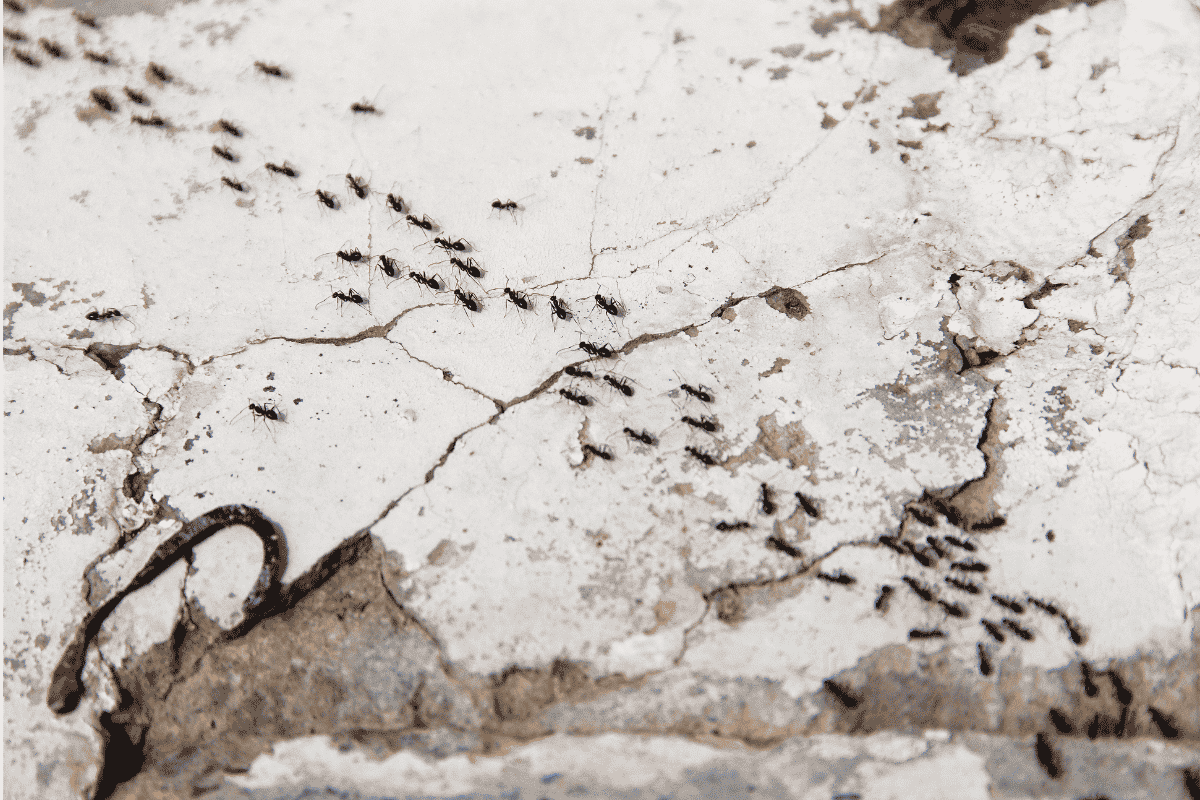Many, if not most pest infestations are seasonal. For example, rodent infestations peak in winter. As rats and mice head indoors, seeking shelter from the cold. On the other hand, warmer weather also causes increases in specific pest infestations. Most notably, insect infestations. So are you wondering what are the most common pest infestations in summer? If so, keep reading!
1. Increased Ant Infestations in Summer
Ants are by far the most common infestation we deal with during the summer months. Typically ants become active in late March. As the temperatures slowly begin to increase. Ants are more active in warmer temperatures. And they use sunlight to navigate. Therefore, increased infestations in summer are inevitable. Additionally, ant lifecycles are temperature dependent. Meaning the warmer the weather, the quicker ant eggs hatch. In the peak of summer the eggs hatch within 3 weeks. That is another reason for the increase in infestations. A quick lifecycle results in increased breeding and larger colonies.
2. Wasp Infestations
Wasps are probably the most obvious insect associated with summer. Who hasn’t come face to face with a wasp while trying to enjoy a summer’s day in the garden? Like ants, wasps thrive in warm weather. Wasps work through spring to build their nest and grow their colony. By summer, wasp colonies are thriving. With the nest and colony reaching peak size by July. Depending on the size of the nest, the number of wasps ranges from hundreds to thousands. Ultimate Pest Control treats multiple wasps nests per day from May onwards.
3. Flies Infestations in Summer
And finally, flies are more common in summer. Despite being active year-round, flies are everywhere in summer. There are two reasons for this. Firstly, flies are cold-blooded. Therefore their body temperatures rise during the increased temperatures in summer. Consequently making them more active. Thus more likely to cause an infestation. And secondly, increased temperatures accelerate the lifecycle. Eggs typically take 20 hours to hatch. However, this takes only 8 hours in summer. It is also worth noting that in extreme temperatures, a fly can transform from egg to adult in under four days. Again, meaning infestations are more common in summer. The ratio of fly sprays in summer vs winter is 10 to 1.
Contact UPC
Are you dealing with one of these common summertime infestations? Call or email Ultimate Pest Control today for a solution you can trust!

